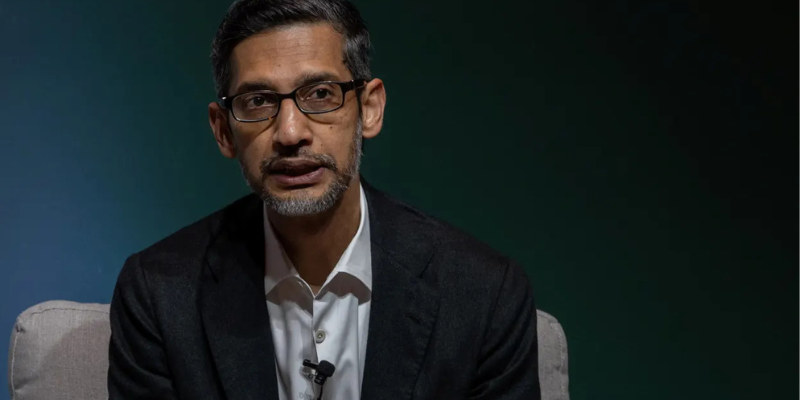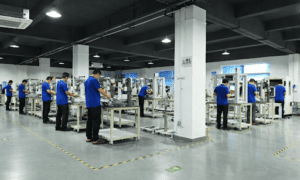Alphabet CEO Sundar Pichai said the company is planning another big year of spending as it continues to build out its artificial intelligence offering.
TakeAway Points:
- Sundar Pichai, the CEO of Alphabet, stated that his business intends to make roughly $75 billion in capital expenditures this year.
- During Alphabet’s fourth-quarter results report, the announcement was made.
- China said on Tuesday it will launch an investigation into Google over alleged antitrust violations.
- The statement followed closed on the heels of China announcing additional tariffs on select U.S. goods.
$75 billion to be invested in 2025
“We are confident about the opportunities ahead, and to accelerate our progress, we expect to invest approximately $75 billion in capital expenditures in 2025,” Pichai said in Tuesday’s earnings release announcing the investment plan.
The capex figure came in ahead of the $59.73 billion consensus estimate for Google, according to Visible Alpha.
On its earnings call, Alphabet said it expects $16 billion to $18 billion of those expenses to come in the first quarter. Overall, the expenditures will go toward “technical infrastructure, primarily for servers, followed by data centers and networking,” finance chief Anat Ashkenazi said.
Alphabet’s announcement came alongside a mixed fourth-quarter earnings report. Shares fell 8% after the company topped Wall Street’s earnings estimates by 2 cents per share, but fell short on revenue expectations.
Alphabet and its megacap tech rivals are rushing to build out their data centers with next-generation AI infrastructure, packed with Nvidia’s graphics processing units, or GPUs. Last month, Meta said it plans to invest $60 billion to $65 billion this year as part of its AI push. Microsoft has committed to $80 billion in AI-related capital expenditures in its current fiscal year.
The recent rise of China’s DeepSeek open-source models has led to some concerns about whether companies need to invest as heavily in their buildouts. Those fears rocked financial markets early last week, spurring a sell-off that contributed to the worst one-day market value loss for a company in history.
Many technology CEOs have called attention to the Chinese startup and its implications for U.S.-based tools. Microsoft CEO Satya Nadella said DeepSeek is showing “real innovations,” while Palantir CEO Alex Karp told CNBC last week that competing AI models means the U.S. needs an “all-country effort” to develop the technology faster.
In addition to infrastructure purchases, Alphabet said it expects headcount growth in 2025 “in key investment areas such as AI and cloud.”
China to launch probe into Google over alleged antitrust violations
China said Tuesday it will launch an investigation into Google over alleged antitrust violations.
The country’s State Administration for Market Regulation said that it would initiate an investigation into the technology giant because of alleged violations of China’s anti-monopoly law, according to a Google translation of the official statement.
The statement followed closed on the heels of China announcing additional tariffs on select U.S. goods.
China’s finance ministry said it will levy tariffs of 15% on coal and liquified natural gas imports from the U.S., starting Feb. 10. It will also impose 10% higher duties on American crude oil, farm equipment and certain cars and trucks.
Google stopped its internet and search engine services in China in 2010, but continues some operations, including helping Chinese businesses looking to advertise on Google platforms abroad.
The Google investigation could end without any penalties, Julian Evans Pritchard, head of China economics at Capital Economics, said in a note.
Google is facing regulatory scrutiny in several countries, including the U.S.
The company lost a lawsuit in August filed by the U.S. government in 2020. It accused the firm of having a monopoly in the general search market by creating strong barriers to entry.
Following the ruling, the U.S. Department of Justice pushed in November for Google to divest its Chrome browser. The department also argued that Google should not be allowed to enter into exclusionary agreements with third parties such as Apple and Samsung.
Google is also currently being investigated by the UK’s Competition and Markets Authority over whether it has “strategic market status” under a new UK law.



































